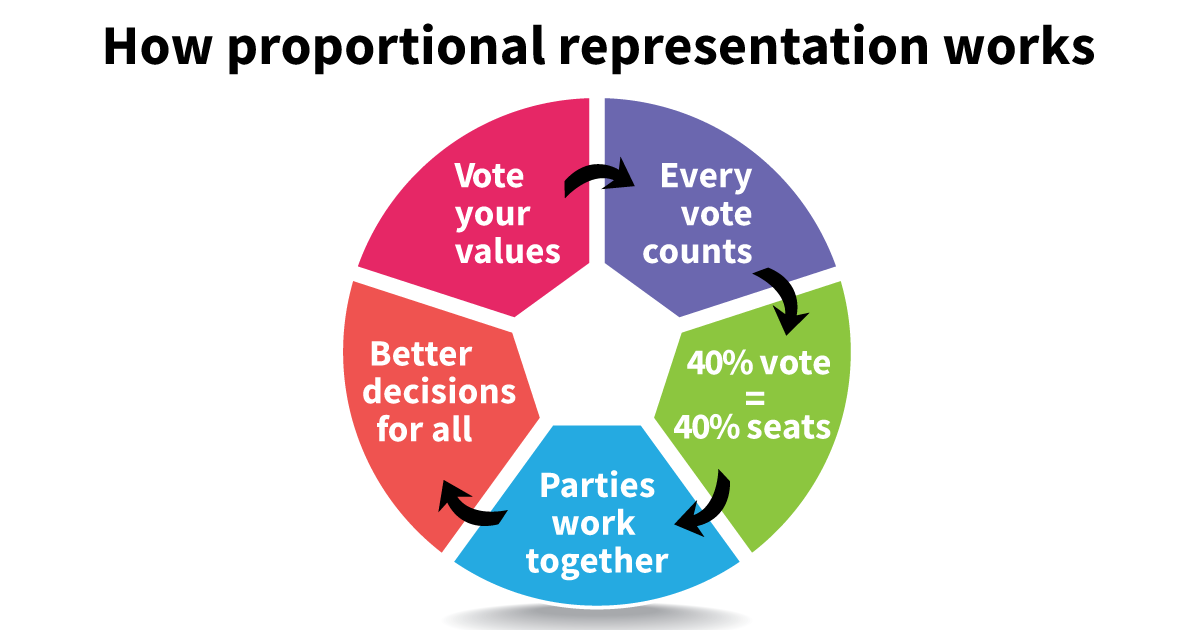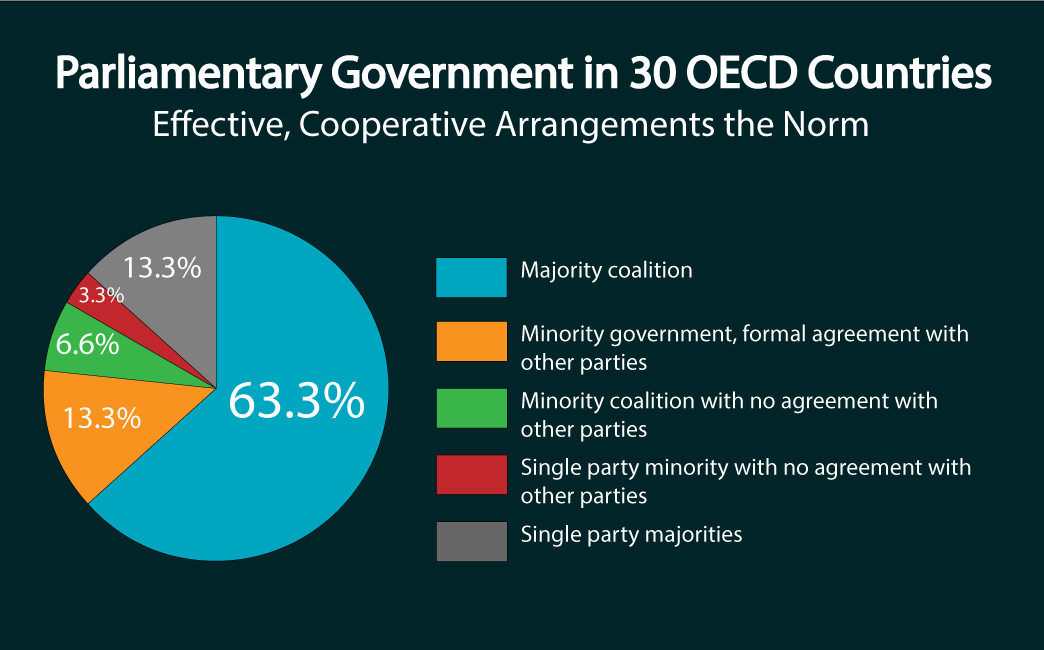

In countries with proportional representation, effective, cooperative governments are the norm
This graph illustrates how parliamentary governments were composed in May 2017 in 30 OECD countries. Of these countries, 26 have fully or partially proportional electoral systems. Most have coalition governments or more informal cooperation with other parties in Parliament. Single party majority governments in the OECD – where one party has all the power – are rare.
When parties have to work together, how does anything ever get done?
One variation of the “instability” myth brought up by opponents (see Fact Checker on Stability) is the related idea that when people of different parties must work together, nothing will get done. Sometimes this is alleged problem is described in alarmist language, such as “recipe for paralysis.”
Political parties play on this myth by urging us to vote for “a strong, stable government.” In other words: Give my party all the power, because power-sharing won’t work.
It’s natural to assume that when individuals with different viewpoints must work to understand each other’s perspective and negotiate solutions, decisions become more difficult.
But research on small group decision making shows that diversity and dissent within a group have two important, positive effects on decision making:
- It leads to more creativity and innovation
- It prevents decisions based on groupthink and pandering
Research show that electoral systems and the mechanisms they create can affect a society’s capacity to solve various policy problems.
Proportional representation makes it more difficult for a single party to achieve a majority of seats, because that party would have to earn the support of a majority of voters. Most countries with proportional representation are governed by stable, majority coalitions.
How does this research on group decision making translate into the ability to get things done in the political arena?
In his book examining this question in depth, Electoral Systems and Governance: How diversity can improve policy-making (2014), Orellana demonstrates that by offering more diversity and dissent, countries with proportional representation outperform winner-take-all countries in four areas:
- Policy innovation: How quickly the public accepts and the government can act on new and innovative ideas, such as renewable energy
- Mitigating pandering: Reducing the tendency of politicians to compete in the pursuit of votes by appealing to voters’ default preferences for quick-fix policies, generally at the expense of society’s longer-term interests
- Improving political sophistication: Increasing political knowledge of the electorate and awareness of different points of view and policy options – media coverage in proportional systems is less focused on polls and leaders and more focused on policy
- Containing “elite extraction:” Limiting the degree to which powerful economic interests can influence policy to their advantage at the expense of the common good.
How do these mechanisms affect policy performance in concrete ways?
Compared to countries using winner-take-all voting systems, countries using PR, on average:
- Have lower income inequality
- Have higher scores on the Yale Environmental Index and more success at controlling carbon emissions and transitioning to renewables
- Have higher scores on the UN Human Development Index, measuring quality of life measures – the social welfare of a country’s citizens
Not only are countries with proportional representation, on average, outperforming winner-take-all countries, they achieve this while offering the same frequency of elections, and ensuring that almost every voter casts a ballot which elects an MP who shares his/her values.
Some of Canada’s greatest achievements, such as universal healthcare, were the product of cross-party cooperation. Given the structure and incentives of a proportional electoral system, we make it easier for our representatives to work together to effectively tackle the biggest challenges of our time.
References
Fair Vote Canada (2016). Why Proportional Representation? A summary of the Evidence
Orellana, Salomon (2014). Electoral Systems and Governance: How diversity can improve policy-making (Routledge).
